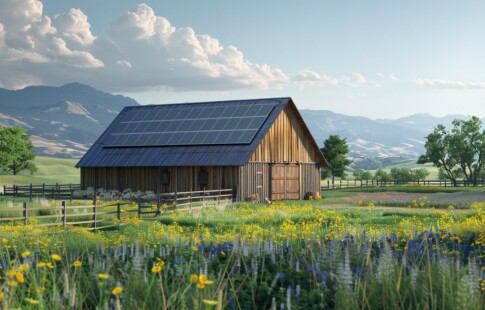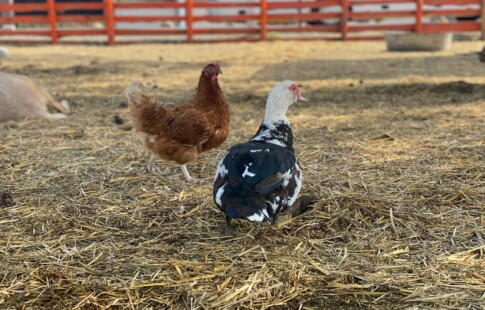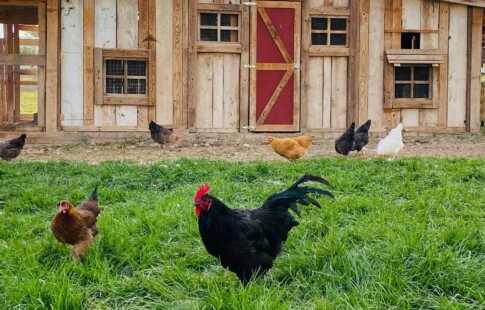
How Vegetarianism Helps the Environment
We are reader-supported. When you buy through links on our site, we may earn affiliate commission.
From chicken to pork to beef, Americans — and humans as a whole — have consumed large amounts of meat for years. But there’s been a steady rise in people saying that meatless diets are vital to protecting our environment. Are they right? It seems like it. Take a look at how vegetarianism helps the environment.
The Carbon Footprint of Food
Did you know that everything you eat has a “foodprint?” This term refers to the amount of carbon that comes from growing, processing and transporting the food you consume. Your goal should be to buy products with small foodprints so that you can support the planet’s health.
A plant-based diet will always have a lesser foodprint. That’s because producing meat contributes to almost one-fifth of greenhouse gas emissions around the world. If you consider the amount of land, energy and water used to farm beef as opposed to beans, you’ll see that the latter is consistently the better option.
The impact of high levels of carbon dioxide is detrimental. These negative effects are far-reaching and long-lasting — and include severe weather, air pollution and other issues that damage Earth and its residents as a whole. The world must reduce its collective carbon footprint if we want to defend our future.
Why Else Is Meat a Bad Idea?
It’s evident that livestock agriculture creates additional problems aside from generating greenhouse gases. Our farming methods need a substantial overhaul to accommodate the growing global population. That’s why the best diet for the future is a plant-based one.
If everyone started eating less meat, we’d be able to stop deforestation practices, reduce water waste and achieve cleaner air. This progress would be necessary even without a climate crisis because we have to feed more people over the next decades. Meat just isn’t cutting it.
You can even look at things from a monetary perspective. By changing our diets, we could save up to $1 trillion annually as a country. That number increases tenfold when you consider the cost of human life at the hands of climate change.
These are some of the main reasons that shine a light on how vegetarianism helps the environment.
Ways to Consume Less Meat
It can seem tricky to pivot to vegetarianism after eating meat for your entire life. Fortunately, you should be able to make small changes to help you adjust. A meat-free diet isn’t as scary as it seems — especially when today’s vegetarian products can taste just like the real thing.
Here are a few tricks to explore.
1. Try Meatless Mondays
The concept of Meatless Mondays was started years ago by a nonprofit of the same name. It involves setting aside one day a week to only eat vegetarian meals. This tactic is an excellent way for people to ease into the idea of going meatless full-time.
You can pick any weekday that works for your schedule. A plan will help ensure you have the right ingredients to make a day’s worth of meatless dishes. If you have to order takeout, you should look for vegetarian options.
As a result, it’ll soon seem like second nature. It won’t be long before you’re more comfortable with making dishes without meat. That’s especially true when you factor in the cost of buying meat every week.
2. Swap Meat for Vegetables
Take a look at your favorite recipes. How could you swap the meat in those recipes for vegetables? For example, you might try making fajitas with sauteed beans and mushrooms instead of chicken. These substitutes are straightforward when you get down to it.
Trying to “plantify” your dishes helps vegetarianism become more manageable — and more fun. Feel free to use Google and Pinterest as a way to find plant-based versions of your favorites. The Internet is a wonderful place to discover inspiration for recipes.
3. Consider New Cuisines
Do you like to eat adventurously? If so, you should consider exploring new cuisines. There are a few countries, notably India, that traditionally consume more plants than they do meat. Looking at these places for inspiration will be helpful.
Make a goal to try new plant-based recipes from different countries weekly. This effort not only allows you to adjust to your diet, but it’s also a great way to experience different cultures. You can learn a lot about a location just by eating their food.
The Way Forward Involves Virtually No Meat
All signs point to plant-based diets for a sustainable future. If we cut meat from our diets now, we can rest assured that we’re taking steps to improve our planet. There are endless ways that address how vegetarianism helps the environment — and you can use them to make a positive change in your diet.
Share on
Like what you read? Join other Environment.co readers!
Get the latest updates on our planet by subscribing to the Environment.co newsletter!
About the author
Jane Marsh
Starting from an early age, Jane Marsh loved all animals and became a budding environmentalist. Now, Jane works as the Editor-in-Chief of Environment.co where she covers topics related to climate policy, renewable energy, the food industry, and more.





